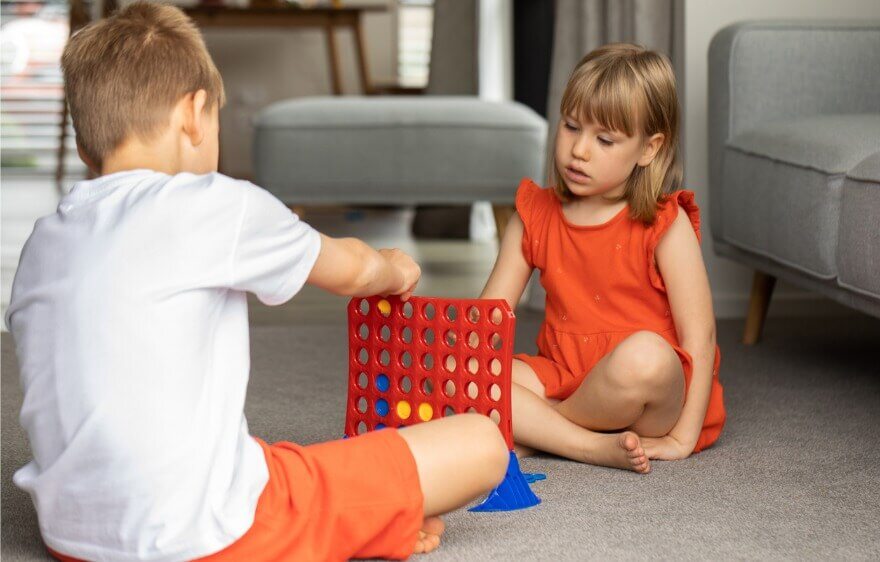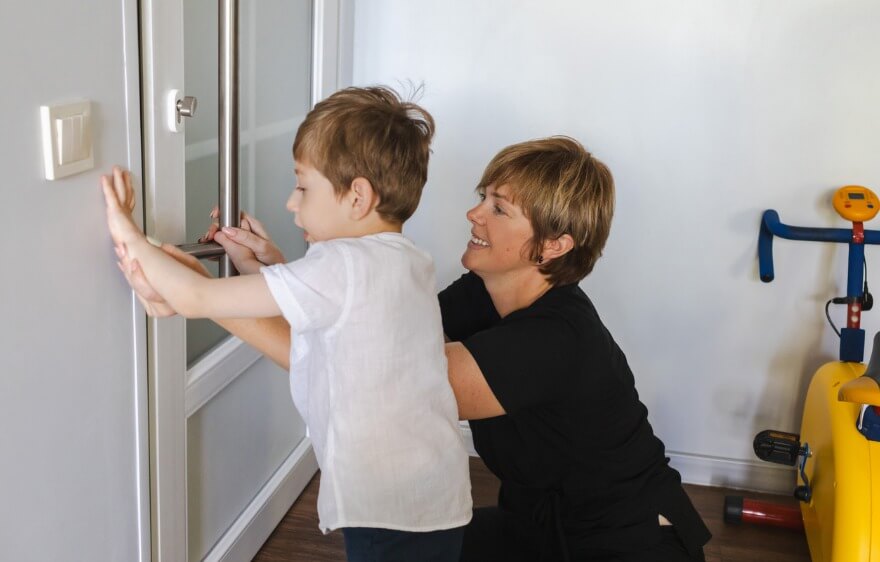It’s game time! If you’re an occupational therapist, you know how valuable play can be. Occupational therapy games can make a huge difference in a child’s development. Whether you’re helping with fine motor skills, sensory processing, or executive functioning, games bring a playful, engaging approach to therapy.
The right games not only foster skill-building but also encourage confidence, patience, and social skills. In this post, we’re diving into the best occupational therapy games, with recommendations for board games and interactive activities that make therapy both productive and fun.
Why Games Help in Occupational Therapy
Occupational therapy games offer an effective, low-stress way to practice essential skills. By using games in therapy sessions, kids are naturally more open to engaging with activities that, in another context, might seem challenging. Games encourage kids to push past their boundaries in a safe, enjoyable environment, helping to improve their coordination, dexterity, and even social skills. For occupational therapists, games can serve as an invaluable tool for observing children’s skills, creating goals, and identifying areas where they might need more focused support.
Occupational therapy games target various key skills for OT, including:
- Fine Motor Skills: Precision with small movements, often involving hand and finger dexterity.
- Gross Motor Skills: Coordination of larger muscles to improve balance and strength.
- Executive Functioning: Planning, organizing, and focusing on tasks, often practiced through strategy games.
- Sensory Processing: Building tolerance and focus when it comes to different textures, sounds, or movements.
- Social Skills: Learning to take turns, follow rules, and communicate effectively.
Below are some top occupational therapy games, each tailored to boost different developmental areas.
The 10 Best Occupational Therapy Games For Kids And Teens
Ready to add some excitement to your occupational therapy sessions or at-home activities? Here’s a list of the top occupational therapy games that help build essential skills like fine motor control, problem-solving, and social interaction — all while keeping kids engaged and having fun. Each game targets different developmental areas, making them versatile tools to support growth and learning.
1. Kerplunk
What it is: A game of balance and precision where players remove sticks one at a time, trying to avoid letting marbles fall.
Benefits: Kerplunk is fantastic for fine motor skills and impulse control, as players need to carefully plan their moves. It also promotes hand-eye coordination as kids adjust their movements to avoid the marbles. Additionally, it can encourage social interaction and turn-taking, making it a great group game.
2. Twister
What it is: This classic physical game requires players to put their hands and feet on colored dots while maintaining their balance.
Benefits: Twister is ideal for building gross motor skills, body awareness, and balance. Because it requires participants to follow instructions and adapt quickly, it also reinforces attention skills. For sensory development, Twister encourages tactile exploration, as kids come into contact with the mat and learn to orient their bodies.
3. Perfection
What it is: A fast-paced game where players race against the clock to fit shapes into matching slots before time runs out.
Benefits: Perfection is one of the best occupational therapy games for improving fine motor skills and spatial awareness. The time pressure also helps kids with executive functioning by requiring quick thinking and planning. The game’s excitement is motivating, helping kids learn to manage stress and focus.
4. Operation
What it is: A classic board game where players try to remove “ailments” from a “patient” without touching the sides of each compartment.
Benefits: Operation is fantastic for fine motor control and hand-eye coordination. This game’s small parts and challenging mechanics require precise movements, helping kids refine their motor skills. Operation is also great for building focus and concentration, as players must carefully maneuver the tweezers.
5. Jenga
What it is: A stacking game where players take turns removing blocks from a tower and placing them on top, trying to avoid a collapse.
Benefits: Jenga encourages fine motor control, hand stability, and patience. As an occupational therapy game, Jenga also requires decision-making, concentration, and problem-solving. The gentle tension of balancing the tower can help kids learn to stay calm and focus even in high-stakes moments.
6. Connect 4
What it is: A strategy game where players aim to line up four of their colored discs in a row.
Benefits: Connect 4 is great for visual perception and executive functioning. Players must anticipate their opponent’s moves and plan their own, which promotes critical thinking and strategic planning. For occupational therapy, Connect 4 can also reinforce pattern recognition and fine motor skills, as kids maneuver the discs into the slots.
7. Simon
What it is: A classic electronic game that plays a sequence of lights and sounds, which players must replicate in the correct order.
Benefits: Simon is ideal for memory, attention, and auditory processing. This occupational therapy game engages kids’ concentration skills and requires them to follow sequences, making it perfect for executive functioning practice. It’s also highly engaging, which can be a motivator for kids who struggle with attention.
8. Hedbanz
What it is: In this guessing game, players wear headbands with a card that everyone else can see but they cannot, and they ask questions to figure out what’s on their card.
Benefits: Hedbanz is one of the best occupational therapy games for building communication and social skills. Kids must think critically about the questions they ask, making it an excellent tool for language development. It’s also fun and interactive, helping kids learn how to take turns, communicate clearly, and understand social cues.
9. Don’t Break the Ice
What it is: A game where players take turns tapping out blocks of ice without causing the character on top to fall.
Benefits: This game helps with fine motor skills and hand-eye coordination. Kids practice careful, controlled tapping and spatial awareness as they decide which ice block to tap next. It’s a great occupational therapy game for learning patience and planning, as one wrong move can end the game!
10. Rush Hour
What it is: A puzzle game where players navigate a small car out of a gridlocked “traffic jam” by moving other cars out of the way.
Benefits: Rush Hour enhances problem-solving, spatial reasoning, and planning skills. The game challenges kids to develop strategies and think through a sequence of moves, which promotes executive functioning. Because the game has levels of increasing difficulty, it’s versatile for different ages and skill levels in occupational therapy.
Making the Most Out of Occupational Therapy Games
Integrating occupational therapy games into sessions or at home is a wonderful way to support kids in developing various skills. Here are a few tips for using these games effectively:
- Set Clear Goals: Identify the primary skill you want to focus on with each game. For instance, if you’re aiming to improve fine motor skills, games like Operation and Perfection can be excellent choices.
- Keep it Fun: Remember that occupational therapy games work best when kids are relaxed and having fun. Letting them choose a game occasionally can help them feel more involved and invested.
- Observe and Adjust: Pay attention to how the child responds to each game. If they find it too challenging, consider simplifying the rules or trying another game that offers similar benefits.
- Encourage Reflection: After playing, encourage kids to reflect on their performance. Asking them what they found easy or hard can be insightful for both them and you, helping you tailor future activities.
- Include Family: Occupational therapy games can be great for family bonding. Inviting siblings or parents to join the game can add an extra layer of enjoyment and encourage positive social interaction.
Occupational Therapy Games Help Kids Thrive
Occupational therapy games offer so many developmental benefits while making therapy sessions a blast. From fine motor skills to executive functioning and social interaction, each game provides a unique opportunity to build important skills in a fun, low-pressure way. Try adding a few of these games to your toolkit, and enjoy watching the kids in your care grow, learn, and thrive! Whether you’re a therapist, parent, or educator, occupational therapy games can make all the difference in supporting skill development and confidence in young minds.
Care Options for Kids is dedicated to enrichment and we believe implementing occupational therapy games offers incredible opportunities for growth and development. By encouraging sensory, motor, and cognitive skills and integrating them into sessions and daily routines, our highly skilled OTs support child development in fun and creative ways. How would you like to be part of a team that believes in making skill-building play as fun as possible?
Join the Care Options for Kids Team!
Are you ready for meaningful work that comes with benefits and not burnout? Join the compassionate care team that helps children and families live their best lives. Our clinicians provide best-in-class pediatric nursing, therapy, and school-based services. We bring individualized care to children where they live, work, and play. We have opportunities in homes, schools, and clinics across the country.
Apply at Care Options for Kids now. We make it easy to start so you can make a difference as soon as possible.






